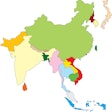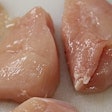23 Feb 2007-Avian influenza (AI) has an uncanny knack of striking in the worst time and place. H5N1 hit the very heart of the United Kingdom’s poultry industry in East Anglia and at a precarious time for producers. They desperately need price rises to offset higher input cost, but face increasing cut-price fresh poultry imports from new EU (European Union) members.
Over the last 20 years, the price of beef has risen 38 percent – despite BSE – and that of lamb by 87 percent. Over the same period, poultrymeat prices have increased by less than 10 percent, representing a massive fall in real earnings over time. Price increases are feeding through for feed, driven up the rising cost of feed wheat and energy, which enclosed units consume in large quantities.
The trend continued in 2006 with red meat enjoying healthy price rises while price of poultrymeat fell by 2.5 percent. This was initially due to cheap French and Italian poultrymeat dumped on the UK market following H5N1 outbreaks in these countries during February 2006. A more serious and long term problem is competition from cut-price fresh poultry meat imported from the new EU member countries in Eastern Europe.
The retail price of fresh chicken in December 2006 (roasting, oven-ready as used in the Poultry Index) was UK£2.23/kg, down 5.2 percent compared with December 2005. The Poultry Index, used in the UK Retail Price Index, was 2.5 percent lower.
The UK also imports chicken from Thailand and Brazil but the meat is invariably pre-cooked, traditionally leaving fresh poultrymeat as the prerogative of UK poultry producers and processors.
Poland and Hungary are now supplying cut-price fresh chicken breasts to big UK supermarket chains with their traditional stranglehold over UK food producers and processors. Peter Bradnock, Chief Executive of the British Poultry Council told the Daily Telegraph newspaper of pressures put on poultry producers and processors by supermarkets wanting lower prices, with potential threats to source abroad if prices are not cut. He predicted even more UK processors would go out of business.
H5N1 could not have arrived at a worse time, according to Charles Bourne, Head of Poultry at the National Farmers’ Union. He is himself a poultry producer with 60,000 birds in western England.
The UK produces 1.6 million metric tons of poultry meat topped up by 530,000 metric tons of imports but still manages to export 275,000 metric tons worth some UK£250 million annually. Exports to fellow EU member countries are largely protected under EU law, but bans outside are already operating in countries like Hong Kong, China, South Korea and Japan. A first look at import/export balance sheets suggests slack might be absorbed in the home market, but Asian demand is mostly for offal, wings and feet with little or no market value as human food in UK.
Turkey industry suffers
By infecting turkeys, the H5N1 virus hit hard on a weakening sector of the UK poultry industry. Turkey production in the UK has more than halved over the last 10 years from 40 million birds down to 19 million, blamed on cheap imports from other EU countries like Ireland and France, but also Brazil and Thailand. Of the 24 large turkey processors operating in 1990, only two remain – market leader Bernard Matthews and Cranberry Foods with turnovers of UK£400 million and UK£85 million, respectively. Last year’s turkey production indicators were down all round with ‘turkey poult placings’ for December 2006 – at 960,000 birds – down 22.5 percent on a year earlier and 47 percent down on December 2004. Turkey eggs set by UK hatcheries were 8.9 percent lower in December 2006 than one year earlier.
Bernard Matthews had reached its seemingly unassailable position by exploiting UK consumers’ desire for fresh, wholesome home-grown turkey. The company won through with a legendary advertising campaign featuring Bernard Matthews himself tucking into roast turkey and describing it as ‘boootiful’(beautiful) in his typical Norfolk accent. Crises like AI quite often cause unexpected revelations and in this case, it was that large volumes of imported turkey meat are on UK supermarket shelves, hitherto believed by consumers to be UK-grown.
Consumers are now beginning to realise that EU/UK laws allow foreign-reared poultry to be labelled ‘British’ providing that the last stage of processing (however minor) was carried out in UK. A recent UK government report says off-cuts from Hungarian turkey breasts processed at the affected Bernard Matthews plant may be mixed with UK-grown turkeymeat in the manufacture of products like turkey rolls. With Bernard Matthews’ branded turkey products advertised in this ‘home-grown’ UK-centred campaign, most consumers automatically assumed they were always eating meat from turkeys reared in the UK.
Sales of Bernard Matthews branded poultry products have slipped by at least 40 percent since the H5N1 outbreak. Under normal circumstances, strong brands should bounce back after heath scares, providing that the company is candid about the problem. Many have criticised Bernard Matthews for not being open in this case, and experts think the revelations about the amount of foreign meat used could cause long lasting damage to the brand.
Not only the turkey industry suffering
Even buoyant poultry sectors like organic poultry and free-range eggs have not escaped unscathed. Free range eggs produced in the UK were compromised when DEFRA (Department of Environment, Food and Rural Affairs) uncovered an illegal operation at a major egg packing station. Cage eggs from other EU countries were being stamped with a bogus ‘Lion Quality’ logo and passed off as UK free-range eggs. Strong demand and a market shortage offered the opportunity for this scam. Some UK supermarkets promptly announced they would import free-range eggs from France and Italy, putting UK producers under even more pressure.
East Anglia is heart of the UK poultry industry and huge numbers of generally small organic and free range producers are currently saddled with keeping birds locked up and licensed-only poultry movement within a 2000km2 restriction zone around the outbreak site at Holton.
All this comes on top of underlying problems for organic and free range producers. Supermarkets were recently accused by the national press of putting pressure on organic food watchdogs to lower standards so they can fully exploit a billion-pound (sterling) organic food industry which is growing by 30 percent per year.
The Soil Association has confirmed that there was intensive lobbying from supermarkets to lower standards. Examples in the organic poultry industry include use of conventional feed materials, continuing the practice of de-beaking and sale of organic chicken from flocks of 2000 or more, even though the Soil Association’s recommendation is for a maximum flock size of 500 birds.


















